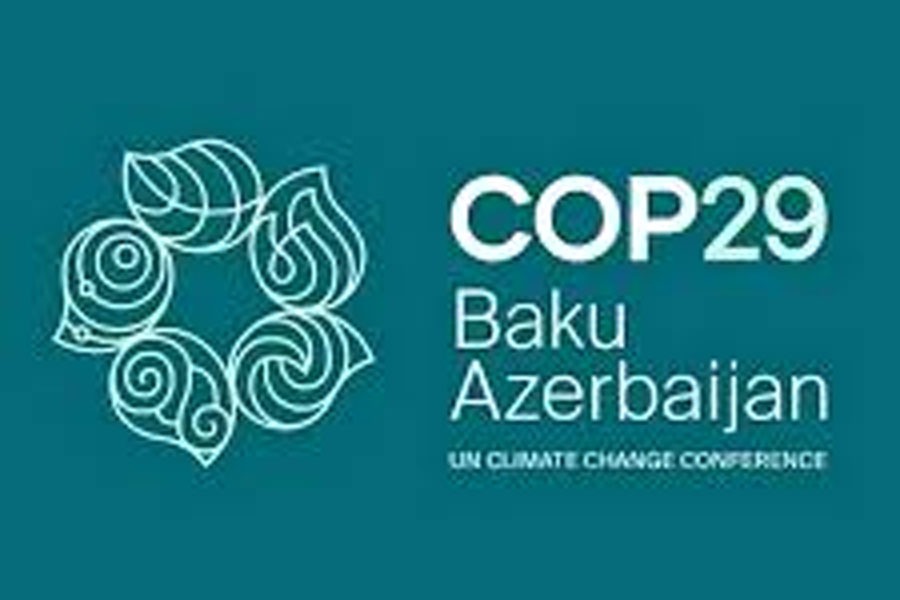As the COP29 Conference enters its final stretch with only two days left before conclusion, Bangladesh, a nation highly vulnerable to the impacts of climate change, has been actively pushing to secure climate justice from the rich carbon emitters.
Bangladesh’s priorities at COP29 centre around climate finance, loss and damage, adaptation, and international cooperation to protect its population from the worsening effects of climate change.
As no decision over increased financing has yet to come, Advisor to the Ministry of Environment, Forest and Climate Change and the Ministry of Water Resources Bangladesh Syeda Rizwana Hasan underscored the importance of adequate and quality climate financing under the New Collective Quantified Goal (NCQG) on the close of Wednesday’s negotiations.
Speaking at the Bangladesh Press Conference at COP29 in Baku, Azerbaijan, she stressed the need for a US$1.3 trillion commitment for adaptation, mitigation, and loss and damage, proposing grant-based financing for adaptation and loss and damage and concessional financing for mitigation.
“Public financing should remain the primary source under NCQG, with the private sector playing a supportive role,” she said, adding, “At least 20 per cent of this funding flow through established UNFCCC mechanisms, such as the Green Climate Fund and Adaptation Fund.”
The Adviser emphasised the importance of defining climate finance to ensure transparency and accountability through the Standing Committee on Finance.
She also noted Bangladesh’s urgent adaptation needs, citing the Adaptation Fund Gap Report 2023, which estimates an annual requirement of US$8.5 billion, leaving a shortfall of US$5.5 billion.
She called for immediate action to fill this gap through external grants, warning of the increasing costs of inaction.
Expressing concern over slow progress in climate finance, particularly the loss and damage fund and NCQG, she criticised the lack of urgency from major emitters.
“Existing policies fall short of limiting global warming to 1.5°C. We are in a decisive decade that will determine our planet’s future,” she said.
Rizwana also voiced disappointment over unresolved issues, including the review of the Warsaw International Mechanism for Loss and Damage and the stalled Mitigation Work Programme.
She urged developed countries to take the lead in mitigation and fulfill their commitments under Article 6, rather than shifting the burden to developing nations.
The Advisor called for stronger commitments informed by the Global Stocktake (GST) outcomes, emphasising the need for tripling renewable energy capacity and doubling energy efficiency by 2030.
“Bangladesh can transition to renewable energy with higher ambition, provided the necessary finance and technical support are available,” she stated.
When contacted, Executive Director of Nature Conservation Management (NACOM), a non-governmental organisation (NGO) operated from Bangladesh, Munjurul Hannan Khan struck a skeptical note over the outcome of the COP29.
“The multinational banks are eyeing to make more profit from projects in the name of climate funding,” he lamented.
The NACOM top brass demanded that the interest rate should be between 0.5 and 0.75 per cent for a 40-year tenure if the developing partners are not willing to pay grants.
“If Bangladesh agrees to a short-term loan, it might be harmful to us as the country is already suffering heavily with debt burden,” he added.
Mr Khan, who is taking part in the COP29 as a Bangladeshi expert, also questioned why Bangladesh should seek loans as the Paris agreement on climate change agreed to provide financial, technological and knowledge support to developing countries from developed nations.
Sources said the current goal of $100 billion in annual funding from the developed nations was set in 2009.
Rich nations have so far been reluctant to offer a starting figure to replace that.
The European Union is expected to finally offer ranging from $200 billion to $300 billion annually, Linda Kalcher, executive director of the think tank Strategic Perspectives, said Tuesday.
That wasn’t enough for Debbie Hillier, climate policy lead for the humanitarian group Mercy Corps, who called it “wildly out of step with the needs of developing countries” and a failure by richer nations to live up to the agreement of the 2015 Paris climate talks.
“If $200-300 billion is indeed the ballpark for what developed countries will offer, then this is a betrayal — a betrayal of the communities around the world who, whilst least responsible for climate change, are bearing its most devastating consequences,” she said.
Some wealthy nations were talking of loans that could be leveraged to attract other money — grants, more loans and private investment — to multiply the funds they can offer.
But poorer nations say they are already drowning in debt and most money should come in the form of grants.
“It is possible to find constructive, innovative solutions,” said Denmark’s climate minister Lars Aagaard. “But it requires trust.”

